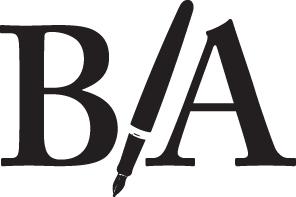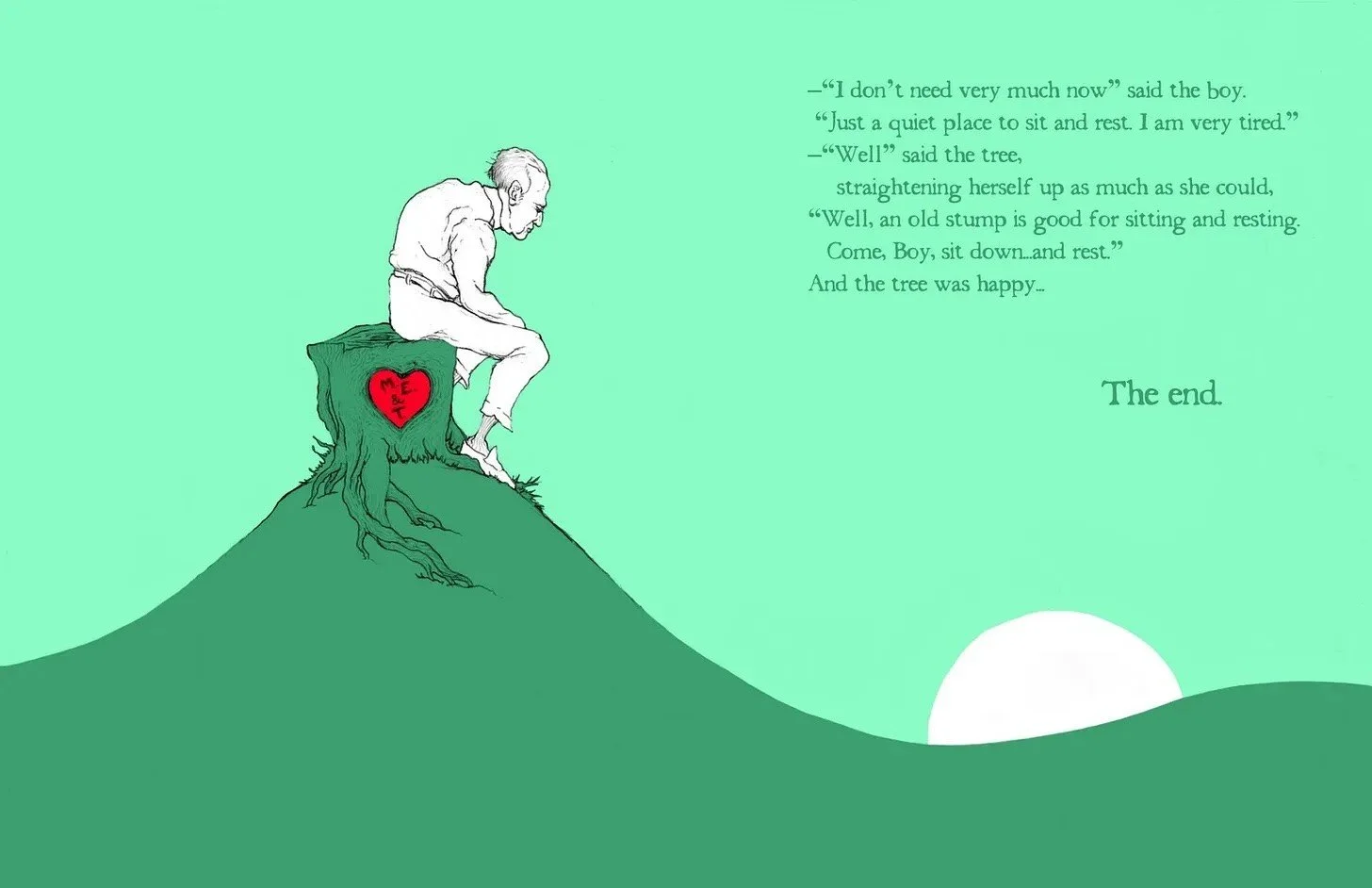Don’t Be a Giving Tree
Generative Leaders always begin with themselves
(Psssst! Hey! Before you get started: I write a weekly essay about generative leadership. This is from the archive. For this week's essay, subscribe here for free.)
Images from one of my favorite childhood sad stories.
There are no happy endings. Endings are the saddest part, So just give me a happy middle And a very happy start. Shel Silverstein
As a kid, I had no problem with sad. Honestly, I still don’t.
Melancholy is something I’ve always oddly enjoyed.
Don’t get me wrong—I had a happy, carefree childhood. Like most kids of the ’70s and 80’s, I spent countless hours outside. Imagination was everything. And sure, I loved those sunny summer days filled with tree climbing and bike rides, but I also thrived on rainy, cold days: soup, books, thoughts, and a little gloominess.
Even now, 50 years later, I still love a good soup-and-book day.
Embraced and owned melancholy is probably why I still enjoy Shel Silverstein’s The Giving Tree (Public Library).
If you’re not familiar with the book, it’s a simple story about a boy and tree.
The tree gives the boy fruit, and shade, and apples, and branches. The tree loved the boy and gave everything it possibly could to him. After every incident of giving the text says, '“and the tree was happy.”
Finally the boy (now a man) had an apparent existential crisis and came back to the tree with the desire to “build a boat and sail far away.” The tree said to cut down its trunk to a stump and build a boat. The boy did and left.
The book says, “And the tree was happy … but not really.”
Then it ends like this:
It’s a disconsolate story for rainy, cold, soup and book days. And I loved it.
While I appreciate Shel Silverstein and his contribution to sad children’s literature, I also don’t think the giving tree is how you and I should pattern our lives.
The best asset we have for making a contribution to the world is ourselves. If we underinvest in ourselves, and by that I mean our minds, our bodies, and our spirits, we damage the very tool we need to make our highest contribution. (From The Essentialist by Greg McKeown)
This is from another book, that’s probably still the most important book I’ve read in the past 10 years. The basic premise is this:
If you’re going to make the highest contribution to this world that you possibly can, you have to take care of yourself.
You are the asset.
Protect the asset.
This doesn’t mean selfishness. This can still mean radical generosity. However, radical generosity a la The Giving Tree is not sustainable and will not lead you to make your biggest and most valued contribution.
“Self-care” is a loaded term in the age of Internet influencers.
It seems tainted. Selfish. Photogenic people spending their days at spas in Bali. This is not actual “Self-care”.
Self care is doing the essential things that keep you at your best self.
So, don’t be a Giving Tree.
Sleep.
Eat Well.
Drink water.
Celebrate wins.
Cultivate Gratitude.
Read good books.
Talk long walks.
Do what it takes to choose joy.
When necessary, sit in sadness (maybe with soup and a book).
Don’t burn out. Don’t give until there’s nothing left to give. Remember you have limits and celebrate that.
Also, remember this: you’re doing better than you think.
I write an every Sunday-ish essay over on Substack containing bits and bobs of what I’m reading, writing, watching, thinking, and experimenting with this week. It’s always free. But if you like it and want to upgrade your subscription to paid, it will certainly help fund the coffee necessary to keep writing.
I am a consultant, coach, and trainer with Growability® Consulting, specializing in non-profit, cross-cultural business, and leadership. Check out the Growability® Podcast at all your favorite podcast places. Would you like help with tools for managing your organization, time, and projects? Connect with me. Let's grab coffee. (Virtual or IRL!)
Growability® Coaching can help.


